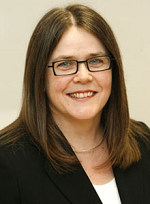By Ben Adams
After 5 years of bypassing NICE, the Cancer Drugs Fund (CDF) will now be run by England's medicines pricing watchdog in an attempt to plug a major funding black hole in its budget--but the decision has been met with severe criticism.
The changes, confirmed this week by NHS England, come as a swift response to the 12-week public consultation on the CDF that only ended on Feb. 11.
The CDF has since March 2011 injected an extra £200 million a year into England's tax-funded National Health Service to pay for new oncology products rejected by NICE, or under appraisal by the institute.
But from 2013 onward there was a major annual overspend of this budget and the government had to raise the fund to £340 million a year--while also seeking to save money--just to make ends meet. In fact a number of drugs and their indications were "delisted" (i.e., removed) from the fund in 2015 in an attempt to help find these savings.
The CDF was independent of NICE and would typically fund those medicines the institute deemed too pricey--however, from July 1, NICE will play a central role in deciding which new drugs make the cut and which medicines already funded by the CDF should be axed.
This has led to fears that many personalized oncology treatments will be removed as a result of their high price tags, which can top £100,000 ($140,000) a year per patient.
NICE is being given a few months to work out just how it will take on its new role. From April 1 the current CDF list will be rolled over but will remain closed to new drugs pending the start of the new scheme in July, when the institute will take over.
This marks a major turnaround in the fortunes of both NICE and the CDF, as NICE was in 2011 set to be downgraded by then British health secretary Andrew Lansley to have reduced power on recommending new drugs.
The CDF was designed as an interim budget and was due to end in April 2016. It was originally set up to help bridge the gap in access to these treatments before the creation of a new drug pricing system to replace NICE, known as Value-Based Pricing (VBP).
But this system failed to be approved and NICE will once again become the sole arbiter of assessing the cost-effectiveness of drugs in England.
Patients currently on medicines funded via the CDF prior to July will continue to have their treatments paid for as long as they require them. Any drugs cut from the fund by NICE in the future will be given a "notice period" before being denied to new patients.
Some charities are outraged that the new CDF system will likely reject patients' access to the 47 medicines currently funded via this silo budget. The Rarer Cancers Foundation said almost 22,000 patients could lose out each year due to the changes, given NICE's penchant for saying no to costly cancer drugs.
 |
| Beating Bowel Cancer CEO Mark Flannagan |
Mark Flannagan, CEO of the Beating Bowel Cancer U.K. charity, has long wanted a change to the way decisions on access to new cancer drugs are made in England, but says this week's decision ignores the needs of patients.
When asked if he was concerned about the new process, he told FierceBiotech: "You're damn right I'm concerned. The CDF has always just been a sticking plaster--but the government is intent on keeping it as a long-term solution.
"What we need is to reform NICE and the very outdated model it uses to assess the cost-effectiveness of medicines [the QALY formula which has been used since 1999]. It's described as the 'gold standard' for dealing with the costs of new drugs, but it simply isn't fit for purpose any longer, and the charity sector and pharma all agree on this. But now we've got an unreformed NICE at the helm which ignores real-world data and focuses ultimately on keeping costs down within a capped budget."
Two of the most commonly funded medicines via the CDF over the past 5 years have been Roche's ($RHHBY) Avastin and Merck KGaA's Erbitux, both of which have licenses for colorectal cancers. NICE has consistently rejected these as not fitting within the QALY formula, and Flannagan is now worried they could be cut from the CDF now that NICE is in charge.
"We've argued with ministers about new ways of doing this, such as by asking pharma companies to run a system based on payments by results, but the government just isn't interested," he said. "And this isn't as simple as saying if you're on the side of the CDF you're in the pockets of pharma--I don't care about pharma profits; I only care about getting the best medicines to the right patients as quickly as possible.
"We should also be collecting data on whether the CDF improves outcomes--but the government has systematically failed to do this despite our protestations. And because we don't have that data, some say, 'Well, that's evidence it doesn't work'. In reality, it's just evidence we don't have."
 |
| Breast Cancer Now CEO Baroness Delyth Morgan |
Baroness Delyth Morgan, chief executive at Breast Cancer Now, echoed these concerns, saying: "These proposals do not offer sufficient reform on the existing NICE appraisal process. With the last 6 breast cancer drugs to be assessed by NICE being rejected, and with key issues left unaddressed, we're concerned that clinically-proven drugs will continue to struggle for approval on the new fund."
The Japanese firm Eisai, which has seen its breast cancer drug Halaven rejected by NICE and delisted from the CDF, also criticized the decision. In a statement to FierceBiotech, Gary Hendler, CEO of Eisai EMEA and president of its global oncology business unit, said the decision was an "utterly disgraceful situation. The decision to implement the new CDF pretty much as it was proposed in the consultation will put cancer treatment back to where England was prior to the creation of the Fund which is a tragedy for patients. Time is not a luxury that these patients have."
- read NHS England's board papers on the decision here